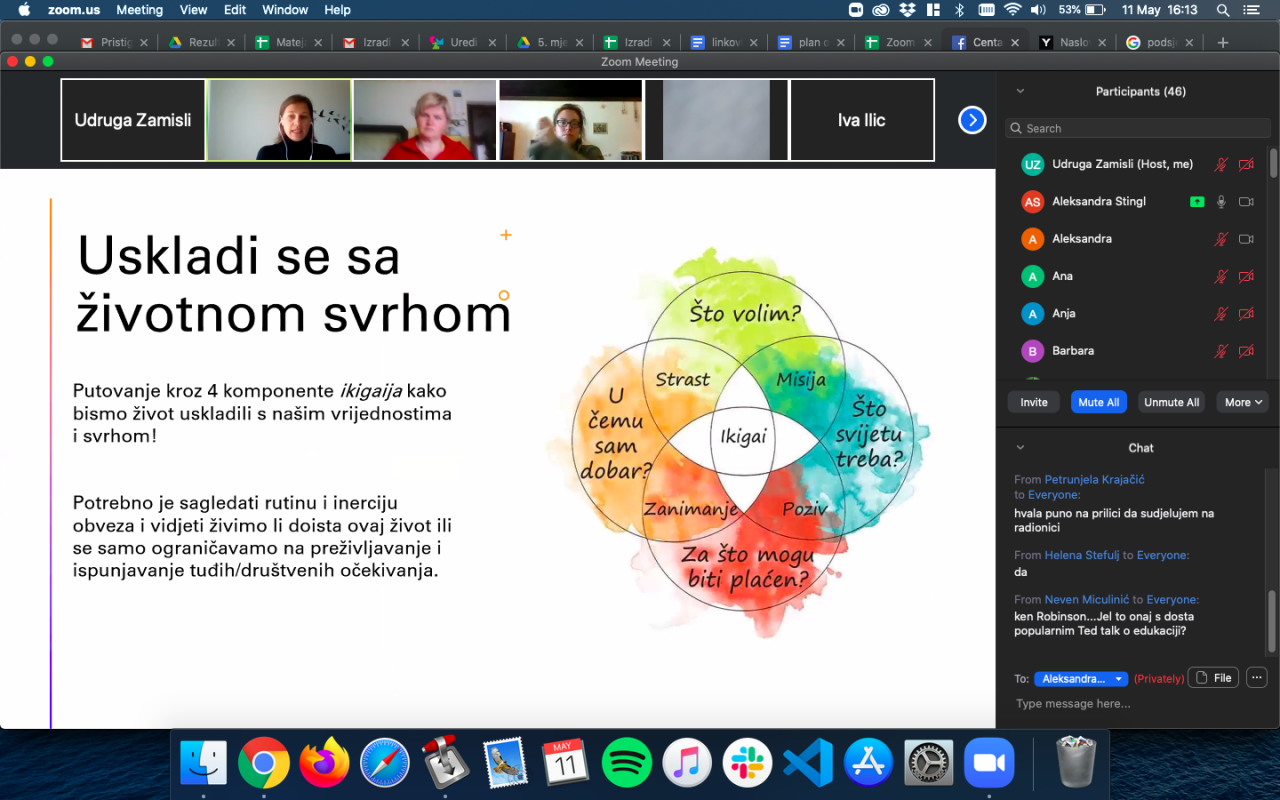When you feel you have something worth offering and you don’t currently have the ability to charge for it, offer it for free. You will feel good, and you will surely teach someone something useful and open new vistas for him.
Practical workshop called “Ikigai” I recently volunteered twice for the users of Youth Center of the City of Zagreb. The interest was huge, after 100 applications for the first zoom training, we stopped the application process. About 50 applications were received for the second workshop, and a total of 85 people participated in both workshops. And not only from Croatia, but also from Serbia. By no means do I believe that this has anything to do with fashion, but with the true desire of people to learn more about this Japanese philosophy of defining life purpose.
Ikigai is the meaning of life or what makes us get up with joy every day.
Ikigai literally means – IKI – to be alive, GAI – what is worthwhile!
Ikigai overlaps four life components – what a person loves, what he is good at, what the world needs and everything he can be paid for. Ikigai forces us to look at the routine and inertia of obligations and see if we are really living this life or just limiting ourselves to surviving and meeting other people’s / social expectations. To achieve this we only need to do the following four things: discard modesty and insecurity and check which areas or abilities are natural to us; to become responsible persons, self-confident, able to defend and emphasize our abilities; have fun with ourselves and discover what fills us with motivation and finally think about how we can have fun doing what we adore! Anyone who has read Sir Ken Robinson’s book “The Element” will know that he is talking about a similar thing, only he calls it an element, and that is the point where what we are good at and what we like to do merges! For those looking to make their own ikigai I recommend reading books “Ikigai” by Ken Mogi, “Ikigai” and “The Ikigai journey” by Hector Garcia and Francesc Miralles.

